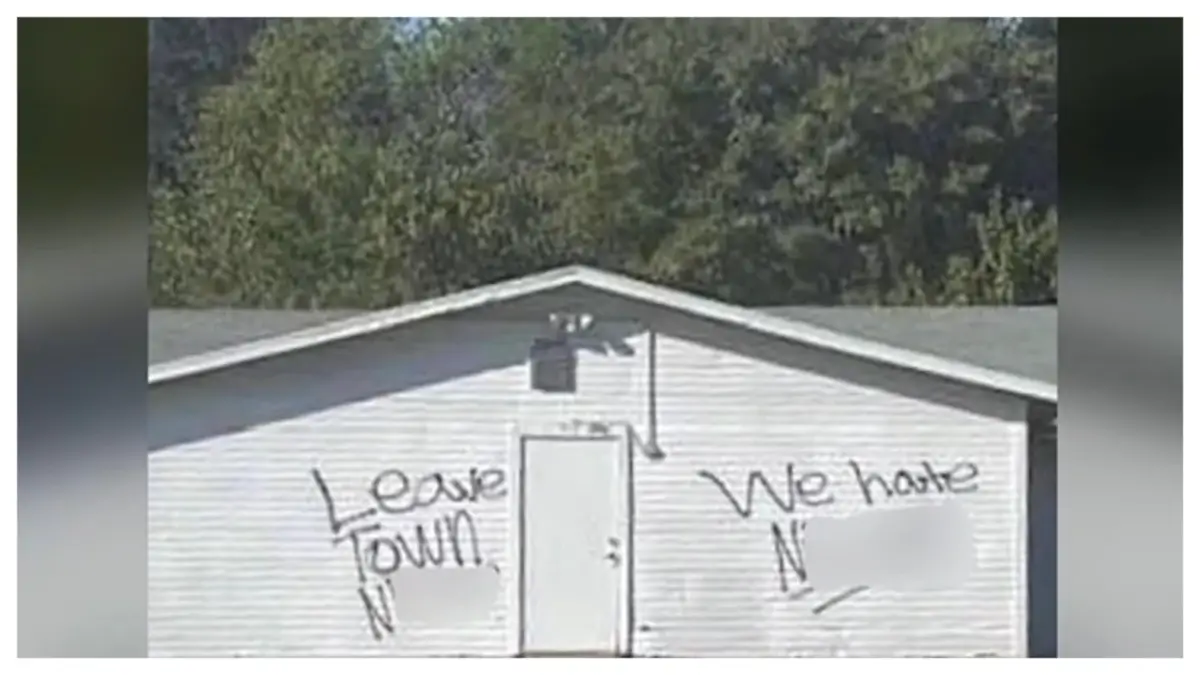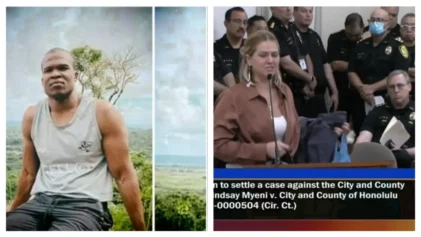Authorities in Paris, Texas, are investigating a suspicious fire last week that destroyed a Black church, which reportedly had been spray-painted with racial slurs before it went up in flames.
Officials have remained mum after the Sept. 29 blaze, prompting some community members to doubt their commitment to a thorough investigation. At least one activist raised concerns that city leaders may prioritize preserving the city’s low-key reputation over addressing the real issues at hand, including ongoing racial discord.
Love Tabernacle Church, a single-story wood-framed structure, was fully engulfed when the Paris Fire Department arrived at the scene at 11:15 p.m. and put the hoses on the flames.

By then, however, it was already too late. The building, which had stood for three years at the corner of Center Street and 13th NE, was ultimately reduced to ashes.
Photos of the graffiti were sent to the Paris Fire Marshal, who arrived a short time later to inspect the scene, reports said. The Texas State Fire Marshal’s Office was also called in to assist the investigation.
Meanwhile, Paris Police Captain Terry Bull pointed out that the fire department was handling the investigation without any input from his detectives for potential criminal charges.
Elsewhere, Pastor Tristan Love said his ministry had been at its current location since 2021 and that worship services will temporarily continue in Cooper, Texas, until further notice.
No one was in the building at the time of the inferno, and no casualties have been reported.
State and local authorities are still investigating, but no further details were released. The Marshals have not said whether they suspect arson.
Local activists urged those in charge of the investigation to pursue hate-crime charges, but police have yet to identify any suspects, while facing immediate criticism from the Black community.
“I’ve been doing this for over 20 years, and things don’t get better because they’re not addressed. They’re glossed over or hidden,” said Brenda Cherry, a rights advocate in Paris, according to KXII News 12. “I’ve not known of a Black church being burned before. Not in this area, but racist graffiti—that’s a common thing.”
Cherry added that she was confused over why anyone would want to target a spiritual sanctuary.
“It’s where people go to worship,” said Cherry. “Nobody comes here to do anything wrong. So why would anyone burn down a church? And why would anyone write racist graffiti on a church? You don’t do that.”
Cherry expressed doubt in local authorities’ ability to determine if the fire was racially motivated, suggesting that city leaders had previously downplayed similar controversies.
“City officials, they need to address stuff like this, not be afraid that it’s going to lead to racial or racial tension, because we already have that,” she said. “They need to do better.”
Racial attacks on Black churches have a long history, dating back to the early 19th century, with hundreds of cases involving arson, bombings, murders, and hate crimes, often carried out by white supremacists and domestic extremists.
The first-recorded church burning in the United States occurred when the Emanuel African Methodist Episcopal Church in Charleston, South Carolina, was burned down in 1822. The church was rebuilt on the same land, and 193 years later became the site of another hate-motivated tragedy when nine Black parishioners were shot dead during bible study by an avowed white supremacist in 2015.
In 1921, during the Tulsa, Oklahoma, massacre, a white mob bombed and destroyed churches.
Decades later, a wave of violent church fires and bombings surged during the civil rights movement, most notably the September 1963 bombing of the 16th Street Baptist Church in Birmingham, Alabama. The attack, which occurred during Sunday service, left 22 people injured and claimed the lives of four young Black girls.
From 1970 to 1980, violence against Black churches dropped to single digits and remained almost nonexistent until a resurgence of attacks began in the early 1990s.
More than 30 Black churches were set on fire during an 18-month span between 1995 and 1996, prompting Congress to pass the Church Arson Prevention Act aimed at curbing attacks across the nation.
Black church burnings continue to be a major concern, with more than a dozen recorded incidents of violence against these places of worship since 2006.
In one of the more recent incidents, two Black churches in Jackson, Mississippi — the Greater Bethlehem Temple Church and Epiphany Church — were set on fire overnight on Nov. 8, 2022. These fires, along with five others that occurred the same night, were determined to be the work of an arsonist.


